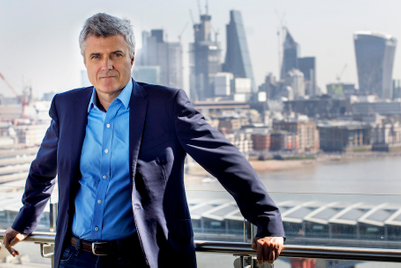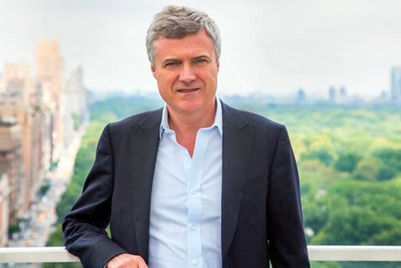
Mark Read, the WPP chief executive, has said he is not planning any more major agency network mergers following those of JWT and Wunderman and VML and Y&R.
Speaking to Campaign after the unveiling of his new strategy for WPP, he claimed he has a "realistic and credible" plan to return the company to growth.
He dismissed the concerns of some financial analysts, such as Ian Whittaker of Liberum Capital, that the plan lacks boldness.
"I don’t think we lack ambition," Read said. "People want us to deliver what we’re saying and that’s what we’re trying to do."
Read, who took over as WPP chief from Sir Martin Sorrell earlier this year, is focusing on four pillars – communications, experience, commerce and technology – as part of a strategy he has called "radical evolution" after two years of declining like-for-like revenues.
Here is an extract of the interview about how he plans to turn WPP, the world's biggest ad group with close to 130,000 staff, into a "creative transformation company".
Some of the initial reaction has been that this strategy review is not that bold and it’s quite bland.
Read: It depends on what lens you look at it. WPP’s challenge, to my mind, is restoring the business to growth, having a simpler structure and reorientating ourselves around clients.
While there are actions we need to take on the cost front, we don’t have a cost challenge per se.
The thing to focus on is the steps we’ve taken – VMLY&R, Wunderman Thompson, announcing the plan for Kantar [with a majority stake up for sale] – which is just under 40% of the revenue, or you can focus on the 3% of costs [with £300m of planned cuts].
Financial analysts tend to look at things through the cost lens.
What we’re trying to do is sum up what we’ve done so far and what we intend to do in the future… I think the share price reaction is good [up 5% initially].
How many jobs are being lost?
Read: The gross figure is 3,500 over the three-year plan. We’re reinvesting about half of the savings back into the business and half will be a return to shareholders.
We haven’t given a direct number for new hires, but the focus of the hires is senior creative talent, technology and growth – that's client-facing activities like new business and marketing.
You are investing an extra £15m to invest in creative leadership. Who are you looking for?
Read: We are looking generally to strengthen the creative bench across North America [where WPP has underperformed].
You’ve announced no new agency mergers, despite a lot of speculation about Grey and AKQA and Mindshare and Wavemaker. Are there going to be more mergers?
Read: The major merger network consolidations that we are planning have taken place. We are looking at the footprint [in terms of the portfolio of agencies] but there aren’t any [more] major network mergers taking place or planned.
You have outlined four pillars – communications, experience, commerce and technology – that WPP will offer clients. But will the company be organised around these pillars with a leader for each of them?
Read: No. We’re trying to highlight the offer that we make to clients and the breadth of what we do. We’re going to organise ourselves around [agency] brands like we do today and not around these four areas.
You are setting up an executive committee for the first time – something that Sorrell never had. Why do you need it and who will be on it?
Read: It symbolises that we are going to run WPP as a team. The people on it will be a mix of people in functional roles like talent and finance and senior leaders from the larger operating companies across WPP. [Read declined to say how many people will sit on the committee or name any of them.]
What does being a 'creative transformation company' mean? Is that what clients want?
Read: We’re saying we’re creative in the sense that’s the essence of WPP and talks to creativity, growth, innovation, ideas – what makes us distinct.
We’re saying transformation in the sense that clients want us to help them transform their business and succeed in the future.
And we’re saying company in the sense that we need to act more as a company and less as a group. We need to come together as a company, hence having the executive committee.
It’s about trying to bring those skills together.
You are only talking about organic growth in line with WPP’s peers in three years’ time. Could you have been more bold or are you keeping expectations low?
Read: We’re trying to set out a realistic and credible plan. Given that we’ve had challenges in our business for the last two years, I think to return the business to growth in line with our peers by 2021 is something we can achieve.
I don’t think we lack ambition. People want us to deliver what we’re saying and that’s what we’re trying to do.
Sir Martin Sorrell has made some critical comments about the company’s direction since his exit in April. Do you have any view on what he’s been saying?
Read: Not on the record.



.jpg&h=334&w=500&q=100&v=20250320&c=1)


.jpg&h=334&w=500&q=100&v=20250320&c=1)
.jpg&h=334&w=500&q=100&v=20250320&c=1)
.jpg&h=334&w=500&q=100&v=20250320&c=1)
.jpg&h=334&w=500&q=100&v=20250320&c=1)




.jpg&h=268&w=401&q=100&v=20250320&c=1)




